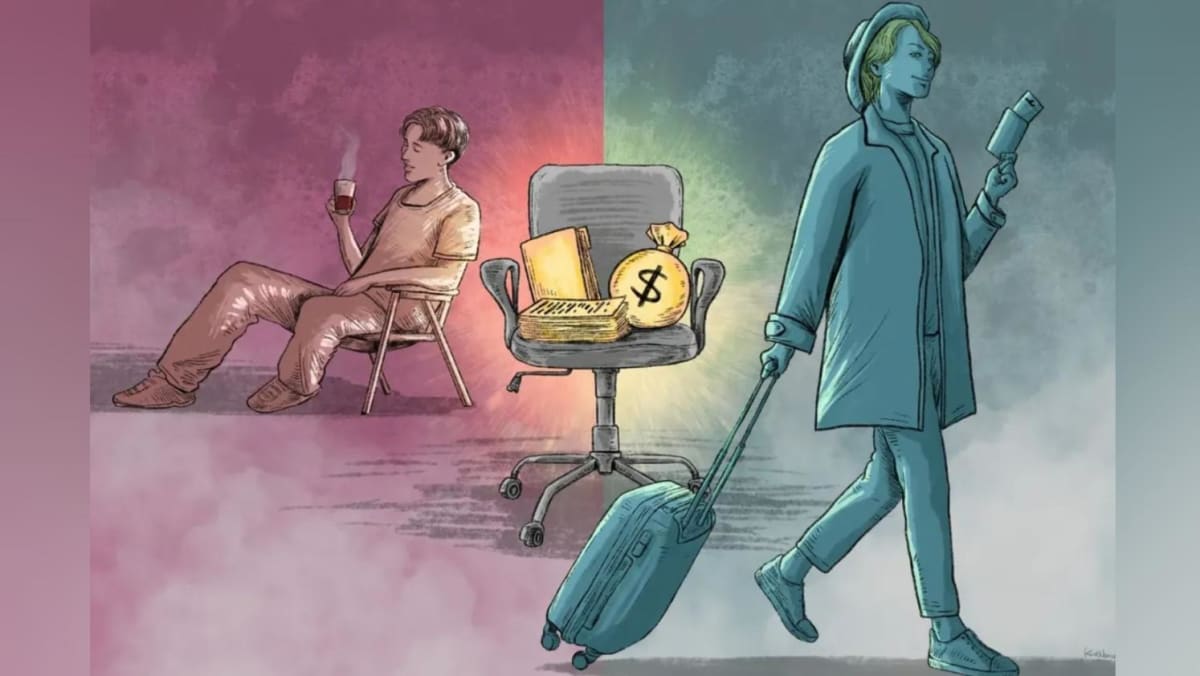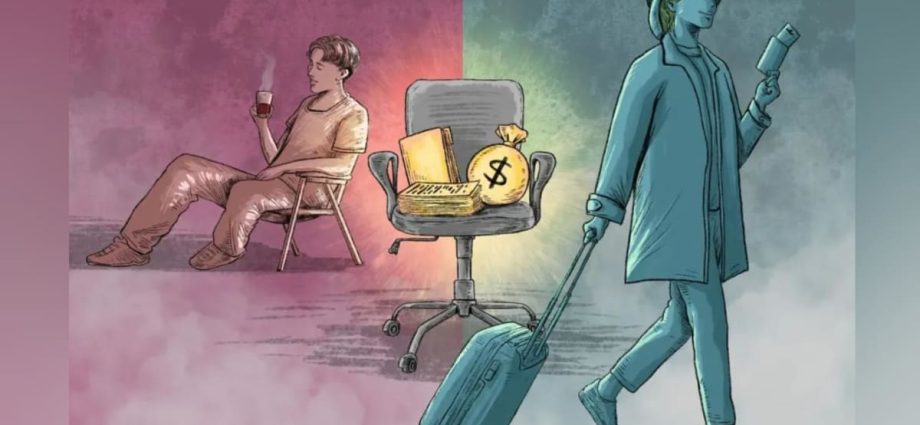
The Indonesian island of Bali was next on the itinerary, but after that, anything is possible.
“They call it ‘gap year’, but it’s the gap to what? Let me be clear, I have no idea what’s coming next,” Healey said.
“At a place like Brown, you get a lot of ambitious kids. They go straight for the money. I’m so proud of them, but they’re going back to where I was born and I’ve already done that.”
In the US before the coronavirus pandemic, preferences were easing away from traditional jobs to less labour-intensive online work, the American business consultancy Sumus said in a 2022 study.
In 2021 alone, more than 47 million Americans voluntarily left their jobs in an “unprecedented mass exit”, the Harvard Business Review found in a study last year. Some had lost jobs a year before, giving them time at home to re-evaluate their futures.
“Despite some differences between China and the US, there are some similarities between American and Chinese youth in lying flat and quietly quitting, as well as many people just leaving the labour force entirely,” said Mary Gallagher, professor of democracy, democratisation and human rights at the University of Michigan.
“I think this stems from a general pessimism among today’s young people who feel that their economic prospects are not very good, the world is at war and in full of conflict, and also climate change and environmental disasters are an increasing stress.”
Economic woes from COVID-19 controls to crackdowns on technology and property firms have also made it harder to get prime jobs around China. Slowing economic growth comes as a further deterrent.
“The trend predates COVID, though it found its clearest expression as a meme during the pandemic,” said Barclay Bram, a fellow at the Asia Society Policy Institute’s Centre for China Analysis.
“The sense that society is unfair and that the herculean effort required to build a successful life amid so much competition is not really worth it is going to remain prevalent unless something drastic changes,” Bram said.
“Ultimately, China is no longer experiencing the meteoric growth that previous generations experienced, so young people today have to find ways to recalibrate their expectations and find meaning even given this new reality.”
Fears over lying flat in China got so bad that in October 2021, President Xi Jinping issued a public condemnation, with his words addressing a trend that threatens to strike at the very heart of his “Chinese dream” ideology, which he has described as the “great rejuvenation of the Chinese nation”.
Xi said in comments published by the Communist Party’s flagship journal on political theory, Qiushi, that involution and lying flat must be avoided to “prevent the stagnation of the social class, unblock the channels for upwards social mobility, create opportunities for more people to become rich, and form an environment for improvement in which everyone participates”.

